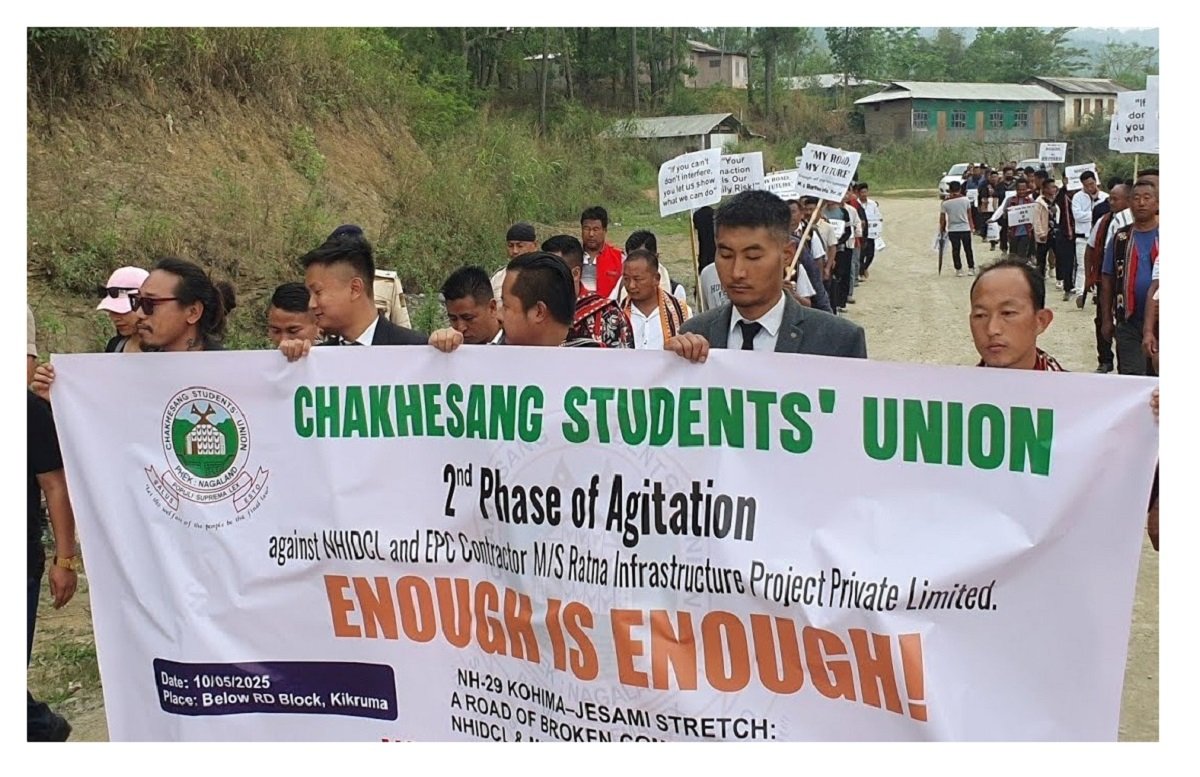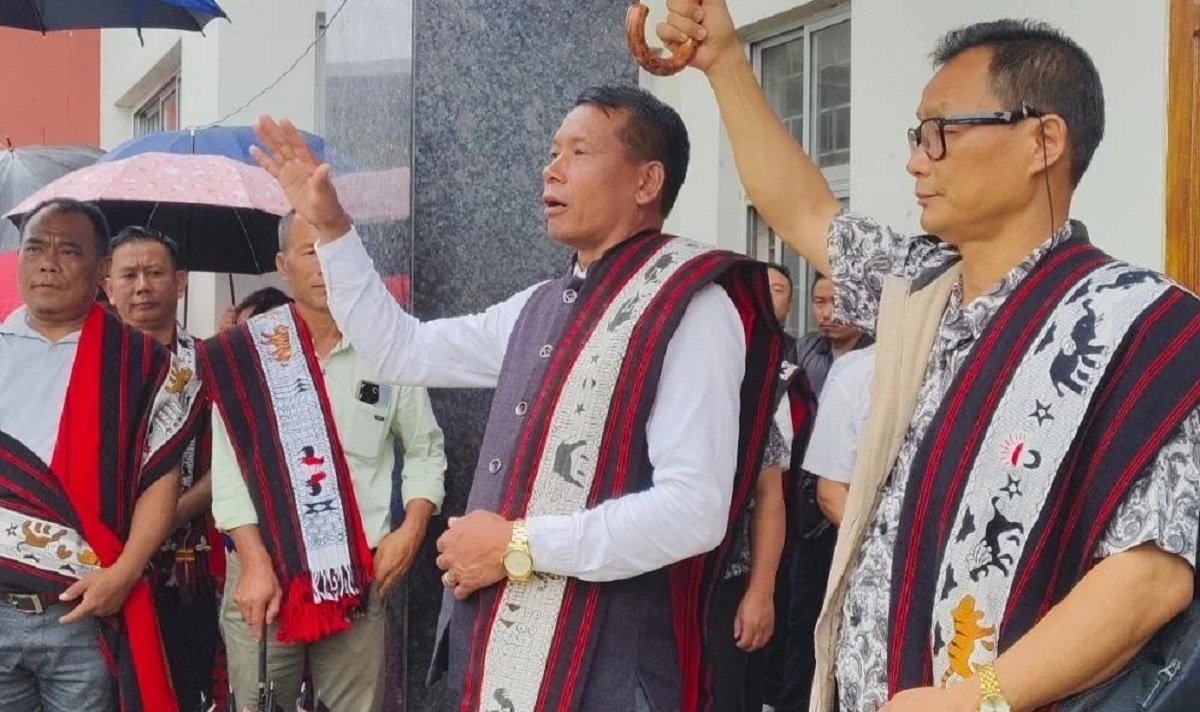Frustrated over the prolonged delay in the construction of a vital national highway, hundreds of students under the banner of the Chakhesang Students’ Union (CSU) took to the streets on May 10, demanding immediate action on the Kohima-Jessami road project. The rally, held in Nagaland’s Phek district, spotlighted growing public anger over what they described as government apathy and a sluggish pace of work by the contractor. The project in question — a 29-kilometre stretch of National Highway Package 2 — is being implemented by the National Highways and Infrastructure Development Corporation Limited (NHIDCL). Intended to connect Kohima with Jessami, the road passes through the strategically important Kikruma area and serves as a lifeline for residents of Phek, Meluri, and Kiphire districts. The students, supported by concerned locals, marched with placards and raised slogans condemning NHIDCL’s slow execution. Speaking at the protest, CSU president Pfhulo Sara expressed deep concern over the condition of the road and the looming threat it poses to public safety as the monsoon approaches. “The lack of tangible progress is alarming, especially when the project officially began on January 5, 2024,” Sara said.
According to the CSU, multiple representations and reminders have been submitted to the authorities, including a seven-day ultimatum issued on May 2. Despite this, no significant action has been taken to improve the road. “With each rainfall, the road becomes increasingly dangerous. Potholes, landslides, and blocked drainage systems have turned this into a death trap,” Sara added. The student body had earlier locked the NHIDCL office in Pfutsero in October 2024 during the first phase of their agitation. They now warn that if immediate measures are not taken — including the deployment of sufficient manpower and heavy machinery — the protests will be intensified.CSU leaders also pointed to a government progress report from April 20, 2024, which showed that only 10.69 per cent of physical work had been completed. With a project deadline of January 2026, they fear the pace is nowhere near sufficient to meet the target.
Sara questioned the credibility of the contractor, raising concerns about its technical capacity and commitment to timely delivery. “We demand accountability. If the authorities and the contractor cannot deliver, the government must reconsider who should be allowed to undertake such crucial infrastructure projects,” he said.




